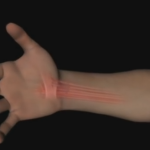Hard stool is usually a sign of constipation. The presence of stool in the gastrointestinal tract for over 48 hours results in reabsorption of the fluid by the body, thereby causing the stool to become dry, hard, lumpy, and difficult to eliminate out from the body.
Untreated cases can lead to chronic constipation and in very serious instances, patients may experience bleeding and pain when passing hard stools. A majority of constipation cases can however be easily resolved with home remedies, diet changes, and lifestyle modifications.
Causes of hard stool
Some of the common causes of hard stool are listed below:
- One of the leading causes of hard stool is leading a sedentary lifestyle and intake of a poor diet. Stool problems can arise due to consumption of foods that are low fiber and starch abundant, processed foods, refined flour, and increased quantities of dairy items, as well as lack of physical activities or exercises.
- Inadequate intake of fluids and water
- Presence of underlying eating disorders
- Depression, excessive stress levels, and hormonal imbalances in the body.
- Regularly suppressing the urge to pass stool. Doing so can eventually result in a loss of such bowel movement urges, which then cause constipation and hard stool.
- Disturbances in routine bowel movements due to travelling and related activities
- Hard stool can also occur as a side effect of some prescription or OTC medications.
- Overuse or abuse of laxatives can result in weakening of the intestinal muscles. This can then slow the process of food digestion, thereby causing hard feces.
- Underlying conditions like hemorrhoids, colon stricture, and colon cancer.
- Alcohol abuse and smoking
Hard stool in babies and infants
Hard bowel movements in toddlers and infants usually occurs due to intake of some baby foods or when they change from a breast milk diet to baby formula. The condition is evident when the stools are hard and big and when affected babies strain discomfortingly during bowel movements. Other causes of hard stool in babies include:
- Varied minor ailments like fever, etc. In this, hard feces is short-term and harmless.
- Giving cow’s milk to the baby can increase the risk to constipation. Subsequently, affected infants will suffer from discomfort and intense pain. In case the milk is sweetened with sugar, then parents can try changing the sugar type from white to brown so as to alleviate the problem of hard stool.
- Lack of exercise or physical activities and intake of low fiber content can cause hard bowel movements in infants as well.
- Infants may avoid passing stool if they develop a fear that doing so will cause pain. However, this only tends to worsen an underlying case of constipation.
Complications of passing hard stool
Constipation and hard bowel movements can cause severe health issues in the long run such as bleeding and extreme pain. Hence, it is important to promptly identify the causes and treat the condition, before it takes a turn for the worse. A few common health complications associated with hard stool are as follows:
- Damage and injury to the anal walls by the hard feces can result in pain in the rectal region. Such pain tends to persist for 1 to 4 days.
- Hard stool can also cause stomach discomfort and pain. This occurs due to the action of toxins that are released during digestive processes. These toxins tends to stay with the stool that remains in the system for abnormal periods during constipation. The toxins however do not cause serious harm and the pain is temporary.
- Excess straining may be required to pass hard stools. Such increased pressure can cause a tear in the anal region or an anal fissure. This can then cause bleeding, pain, and stool with red streaks.
- Fecal impaction is a condition wherein the hard stool tends to get accumulated in the rectum and intestine. In such cases, stool cannot be eliminated by application of normal levels of pressure and patients may need to take stool softeners or laxatives. Later, the doctor may inserted a finger into the anus to manually take out the hardened feces.
- Swollen veins or hemorrhoids, outside or within the rectum can cause bleeding and pain when hard feces are passed.
Treatment of hard stool
Severe cases of constipation are treated as follows:
- Prescription drugs like Amitiza or lubiprostone to increase the amount of fluids in stool.
- Laxatives with chemicals to increase stool frequency, motility, and bulk.
- Medical treatment of underlying diseases like pelvic floor dysfunction via biofeedback and other techniques to facilitate better bowel movements.
- Surgical removal of a problematic segment or certain segments of the rectum or the anal sphincter.
Most cases of hard stool are however minor and treatable with home remedies, as listed below:
- Intake of a healthy and balanced fiber rich diet. Exercise for at least 30 minutes, 4 days a week.
- Bran, oats, and cereal can ease the passage of stool. Raw prunes or prune juices have natural laxative qualities. Eat them to soften hard stools.
- Drink lots of water
- Do not suppress the urge to defecate regularly.
- Avoid laxative abuse/overuse.
